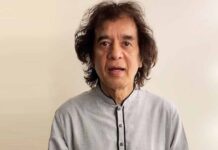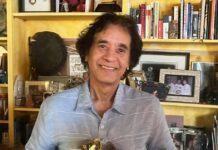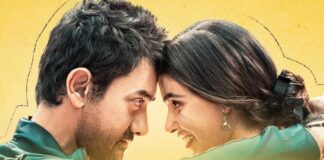The media overplays the importance of awards that are won overseas by Indian artistes vis-a-vis honours received at home, says tabla maestro Zakir Hussain, who has made a niche for himself both in India and globally.
His comment comes just days after Indian tabla players Sandeep Das and Abhiman Kaushal won Grammy awards for separate collaborative projects abroad.
“Media overplays the importance of awards won overseas as opposed to the awards won in India. To clarify, even the great Rahman bhai (A.R. Rahman) won his award (Oscar) in collaboration with a foreign team (Danny Boyle’s ‘Slumdog Millionaire’). It was not an Indian production,” Hussain, who received the Padma Bhushan in 2002, told IANS in an email interview.
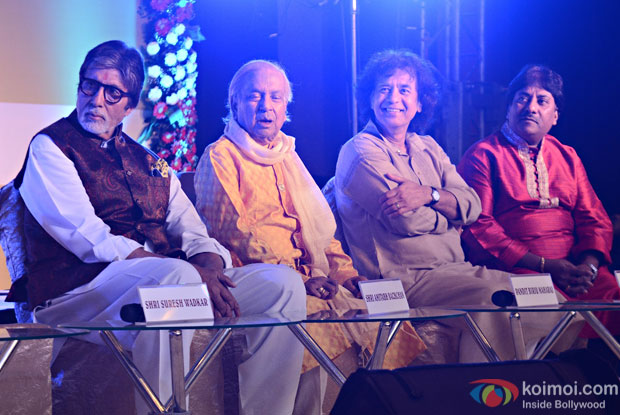
Hussain was in Mumbai last week to perform at the 17th edition of the Ajivasan Musical Academy’s Vasantotsav, where leading Kathak exponent Birju Maharaj was presented the Uttam Vag Geykar Award.
Hussain had himself won a Grammy in 2009 for Best Contemporary World Music Album for “Global Drum Project”.
Even Pandit Ravi Shankar, percussionist Vikku Vinayakaram, Mohan Veena player Vishwa Mohan Bhatt have won Grammy awards.
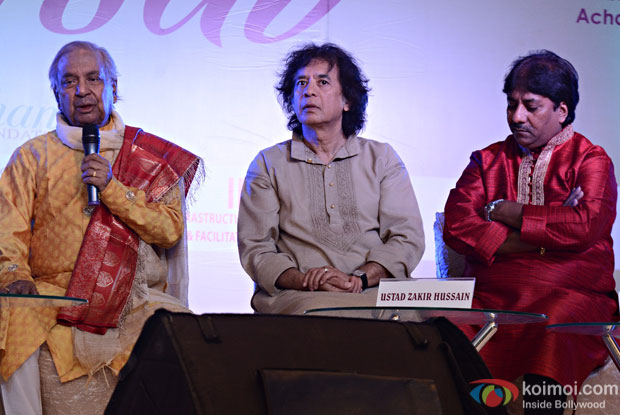
Asked if it is always important for Indian artistes to collaborate with international talent to win a Grammy, Hussain said: “Yes, it is important for Indian artistes to work with other genres of music to advance their ability to put forward their music in a way that would make sense to non-Indian artistes and listeners.”
In terms of involvement of Indian musical instruments in international musical pieces over the years, Hussain, who has over five decades of experience in the world of music, said: “The sample sounds of Indian instruments are very commonly used in recordings all over the world but it is rare yet to see musicians personally interacting.”
Hussain, in his glorious career, has worked with renowned artistes like classical flautist Hariprasad Chaurasia, Sarod maestro Amjad Ali Khan, Norwegian jazz saxophonist Jan Garbarek and English musician John McLaughlin, as well as late musicians Ali Akbar Khan and Ravi Shankar.
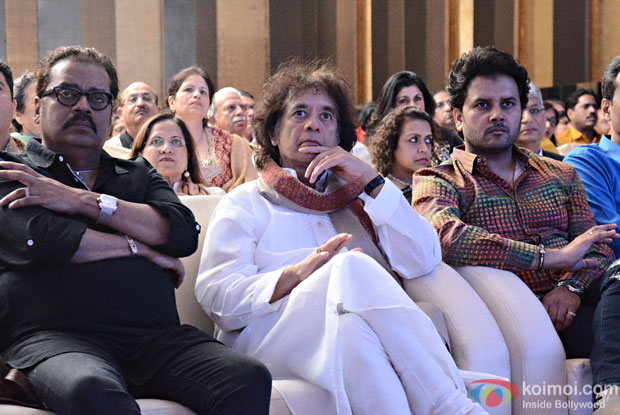
Does he feel India is in need of younger icons in the classical music world?
Hussain says there are already a lot of young artistes who are making a niche for themselves, but the media in the country is not focusing on them enough.
“There are many young artistes who have proved their pedigree for some years now. It is the media that needs to publicise them in the same way and focus as they do with marquee names,” said Hussain, who will turn 66 next week.
To make the younger generation aware and more inclined towards Indian classical music, Hussain says that it is not enough to make classical music and dance a part of the curriculum in school.
“Just including dance and music as part of the curriculum is not enough. There has to be follow-up, focus on especially talented students (a more vigorous teaching programme) and teachers of high quality who will take their job seriously and, of course, someone responsible to oversee the programme,” he said.
The maestro will next have his tabla symphony premiering in Washington, DC, conducted by the Christoph Eschenbach and performed by the National Symphony Orchestra at the Kennedy Centre. He will also be on a spring tour of the US with santoor player Rahul Sharma, a US tour with the band “Crosscurrents” and more.



 Follow Us
Follow Us
